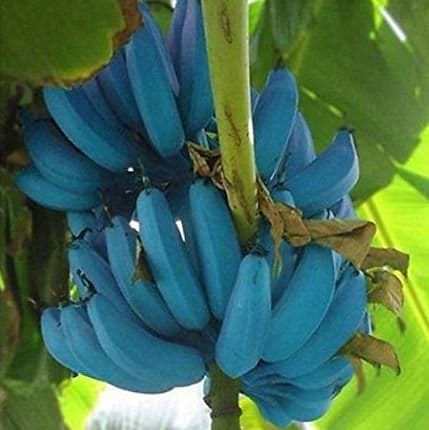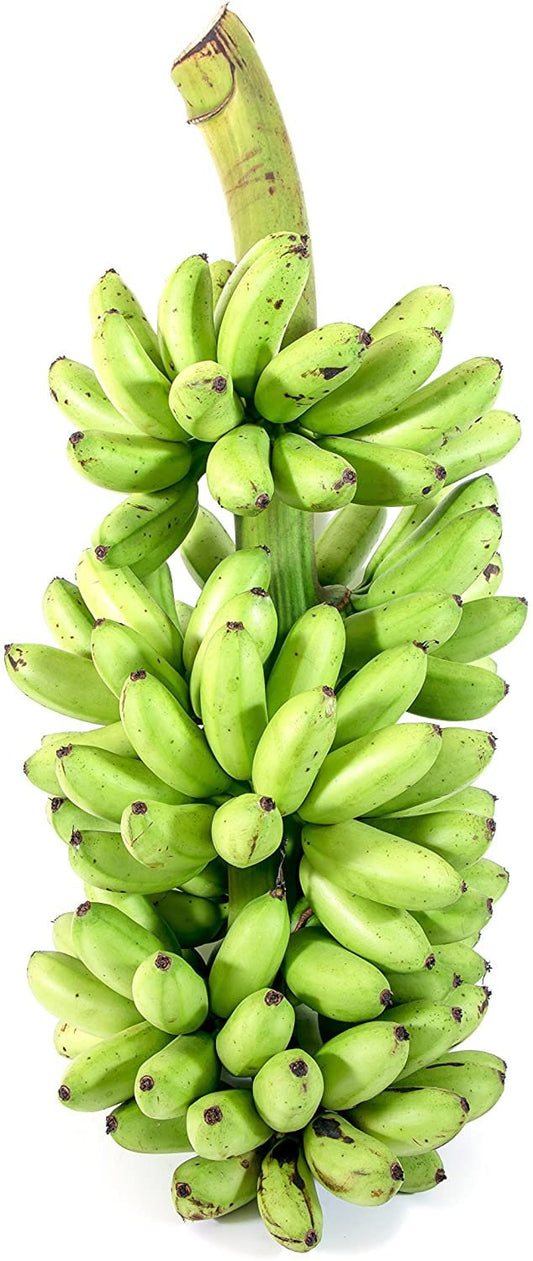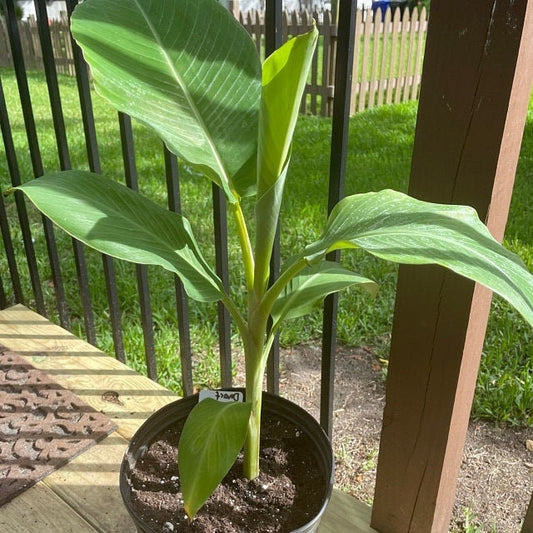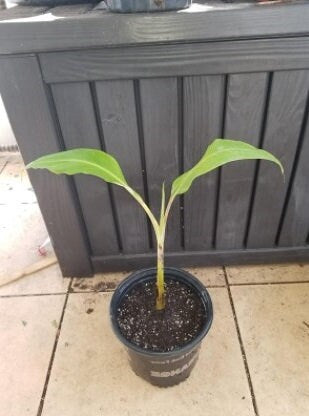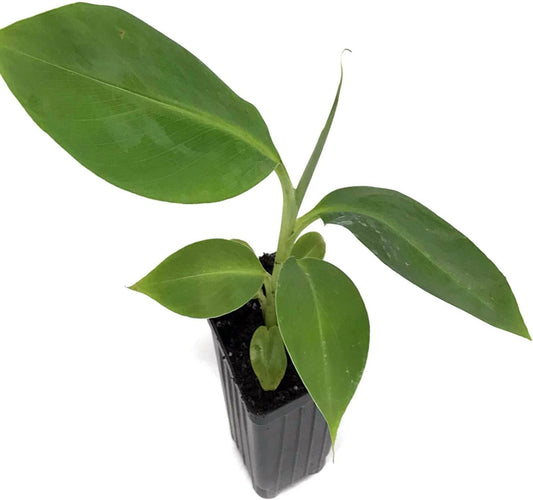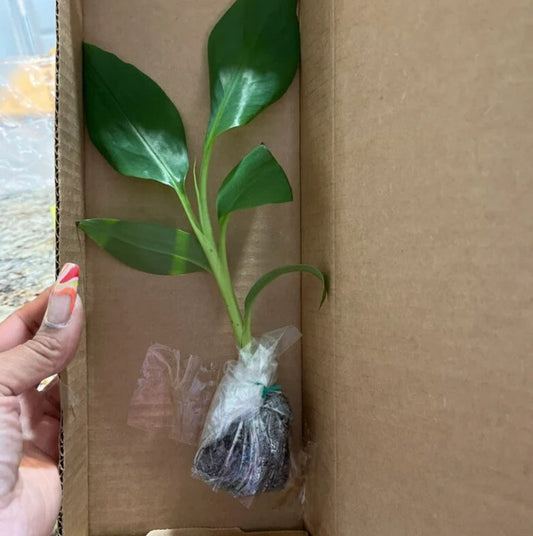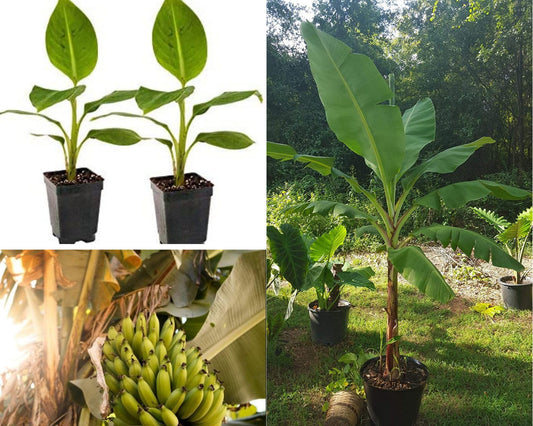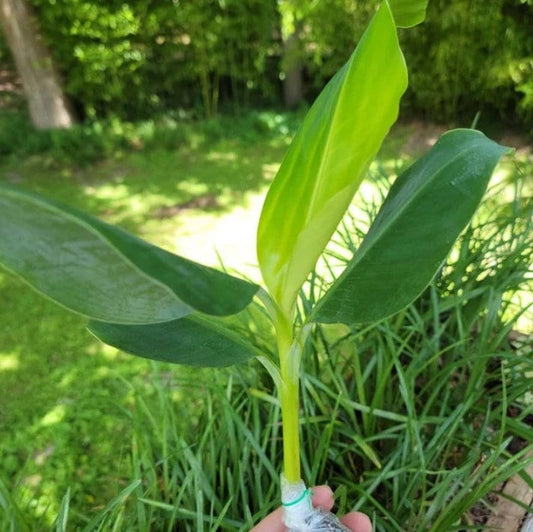Exploring the Robust World of Orinoco Bananas: A Gardener's Guide
Orinoco bananas, also known as "Burro" bananas, are a hardy and versatile variety cherished by gardeners for their resilience to cooler temperatures and their dual-purpose fruit, which is excellent for both fresh eating when fully ripe and cooking in its green state. Originating from the Orinoco River basin area in South America, this variety has adapted well to various climates, making it an attractive option for those in USDA zones 8-11. Whether you have a sprawling backyard garden or a cozy urban space, growing Orinoco bananas can bring a tropical flair to your environment. This blog post will guide you through the steps to cultivate and enjoy the bountiful harvest of Orinoco bananas.
Understanding Orinoco Bananas
Orinoco bananas are distinguished by their thick, sturdy stalks and large, robust leaves, making them resilient against wind. The fruit is chunky and angular, with a unique flavor that's a delightful blend of sweetness and tartness. One of the standout features of Orinoco bananas is their ability to withstand cooler temperatures compared to other banana varieties, although they thrive best in warm conditions.
Selecting the Right Location
1. Sunlight and Warmth: Orinoco bananas need full sun to partial shade, with a preference for warm, humid conditions. A spot that receives at least six hours of direct sunlight each day is ideal.
2. Soil Conditions: They prefer well-draining, fertile soil rich in organic matter. While Orinoco bananas are adaptable to various soil types, maintaining a slightly acidic to neutral pH (6.0-7.5) is beneficial for their growth.
Planting Orinoco Bananas
1. Timing: The best time to plant Orinoco bananas is in late spring or early summer, once the danger of frost has passed and soil temperatures have warmed.
2. Planting Process: If starting with a young plant or sucker, dig a hole that's twice as wide and just as deep as the root ball. Mix in compost or well-rotted manure to enrich the soil, then plant the banana, ensuring it's at the same depth as it was in the container. Backfill the hole and water thoroughly. For container planting, select a large pot with drainage holes and use a high-quality potting mix.
Care and Maintenance
1. Watering: Orinoco bananas require consistent moisture to thrive, especially during the hot summer months. Water deeply and regularly, allowing the soil to become slightly dry between waterings.
2. Mulching: Apply a thick layer of organic mulch around the base of the plant to help retain soil moisture, regulate soil temperature, and suppress weed growth.
3. Fertilization: Use a balanced fertilizer rich in potassium, nitrogen, and phosphorus every 4-6 weeks during the growing season to support robust growth and fruit production.
4. Pruning: Remove any dead or damaged leaves and limit the number of suckers to manage the plant's energy and resources effectively. Maintaining 2-3 healthy suckers around the main plant is usually sufficient.
Harvesting Orinoco Bananas
Orinoco bananas typically take 12-18 months from planting to produce fruit, with the actual timing depending on the climate and growing conditions. The fruit is ready to harvest when it turns from deep green to light green or yellow, and the ridges become more rounded. Cut the entire stalk and hang it in a cool, shaded area to allow the bananas to ripen evenly.
Overcoming Challenges
While Orinoco bananas are relatively disease-resistant and hardy, they can still face challenges such as pests and cold weather. Protecting the plants from frost and managing pests promptly can ensure a healthy and productive banana plant.
Conclusion
Growing Orinoco bananas is a fulfilling venture that offers the rewards of both ornamental beauty and delicious, versatile fruit. By following these guidelines and providing the right care, you can enjoy the lush growth and bountiful harvest of Orinoco bananas, adding a tropical touch to your garden and table. Whether you're a seasoned gardener or a curious newcomer, Orinoco bananas provide a resilient and fruitful addition to any garden.
